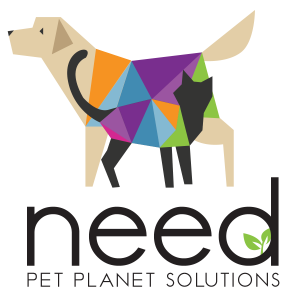Dr. Al Townshend
A microbiome is generally described as a community of microorganisms living together in a particular habitat. Many are not aware that animals and plants have microbiomes both internally and externally.
Two examples of animal microbiomes are the skin and gut. There are millions of microscopic organisms that live a natural coexistence on the skin and a different group of tiny organisms that live in the digestive tract. Every animal species has a diverse group of organisms that make up their specific microbiome.
The gut microbiome of a carnivore is different than that of an herbivore. That’s because, for both the microbiome and the animal to live together in harmony, they have to meet the specific needs of each other.
Dogs and cats eat the nutrition they need to survive and grow, and some of those nutrients are also food to keep the gut microbiome fed and healthy. In return, a healthy microbiome enhances the health and well-being of its host. That is called a symbiotic relationship.
Of all the millions of organisms that make up a pet’s microbiome, there are some that have specific benefits for the pet and those are referred to as “probiotics” or good bacteria.
The Benefits for the Pet
The good bacteria improve the pet’s digestion and absorption of nutrients; they are a significant part of the pet’s immune system, producing essential nutrients that support the health of their hoist.
Maintaining optimum levels of these probiotics is imperative in getting maximum benefit.
Improved Digestion
Ideal species of probiotics at the best levels help break down proteins, fat, and carbohydrates and support the gut’s natural digestive enzymes and stomach acids.
Immune Support
Most are unaware that some 70% of a pet’s immune system is in the gut and that probiotics play an essential role in immunity. Maintaining high levels of good probiotics and feeding the correct carnivore-specific foods discourage harmful bacteria like Salmonella and E. coli and reduce their potential to cause serious disease.
Essential Nutrients
Specific carnivore probiotics produce essential vitamin K and B vitamins and other nutrients, along with short-chained-fatty acids critical for the health and maximum efficiency of the cells lining the large intestine. These nutrients produced by the probiotics which benefit the animal host are known as “postbiotics”.
Many of the nutrients produced by probiotics are derived from soluble fibers in the diet called prebiotics. These prebiotic fibers are not digestible by the pet but are broken down and utilized by the good bacteria producing vitamins and short-chain-fatty acids that enhance the health of the pet.
Overall Long Term Health and Resistance
Studies are finding that consistent healthy probiotic levels can play a role in slowing the aging process and making the pet more resistant to diseases associated with age, such as obesity, diabetes, and other conditions common in older animals.
Maintaining Optimum Levels of Probiotics
- Probiotics, like all living species, have a life expectancy. While they reproduce in the gut, there is the potential that other normal gut species that are not necessarily probiotics will out-grow the probiotics. Maintaining the best levels of probiotics is best achieved by supplementing.
- Many kibbled pet foods now contain guaranteed levels of probiotics. Wet, raw, and almost raw foods generally do not have guaranteed levels and must be supplemented.
- Providing optimum nutrition for the good bacteria with diets or supplements that contain prebiotics such as inulin, beet pulp, FOS (fructooligosaccharides), and other soluble fibers assures a long and efficient life for the probiotics.
- Variety is also important when it comes to providing probiotics. Some probiotics improve digestion while others support immunity and long-term health. Others produce nutrients that benefit the health of the pet.
- Starting puppies and kittens off with pre and probiotic supplements assures improved digestion and immune support early in life when they are most vulnerable.
- Feeding carnivore-specific foods to the canine and feline species (high animal protein and low carbohydrate) encourages the best bacteria for the species long-term health.
- Maintaining a safe and healthy environment and lifestyle for the pet reduces stress, helps prevent dietary indiscretion and rapid changes in diet that can affect the microbiome. Avoiding the need for antibiotics which kill the good and the bad bacteria.




